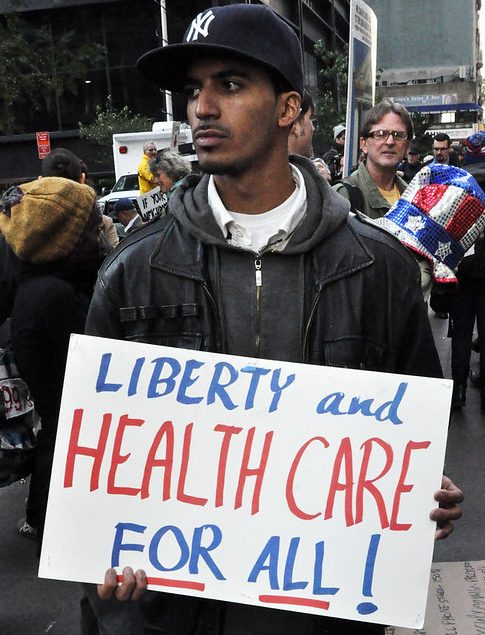Democratic presidential candidates’ health care reform proposals are designed to improve upon your current coverage. But, how? Would a public option reduce out-of-pocket health care costs and guarantee Americans access to affordable health care?
If you have traditional Medicare or a Medicare Advantage plan, Vice President Joe Biden and Pete Buttigieg‘s public option proposals offer little guarantee of reducing your health care costs. They are largely designed to provide more options to working people and people without insurance today. Health care reforms proposed by Senators Elizabeth Warren and Bernie Sanders, in stark contrast, would reduce your costs substantially, ending Medicare premiums, deductibles and coinsurance and adding important benefits, including vision, hearing, dental coverage as well as home and community-based care.
If you have employer coverage, Biden and Buttigieg offer you a Medicare-like option. You could get your health insurance through a Medicare-like system rather than a corporate health insurer if you chose. Would that help?
Biden’s and Buttigieg’s public option proposals could help some people afford insurance coverage they cannot afford today. But, it’s not at all clear their plans would help with out-of-pocket costs. Shefali Luthra reports for Kaiser Health News that a recent Kaiser Family Foundation poll reveals that about four in ten people with employer health coverage have trouble paying medical bills. About 50 percent of them delay or forego care because they can’t afford it. And, about one in six of them have to make “difficult sacrifices” to pay for their care.
Except at the margins, Biden’s and Buttigieg’s public option proposals appear to be of little help to people with employer coverage who struggle to afford their care. They do not fill gaps in people’s coverage; they still require you to pay a lot for your health care. And, they do not offer people additional benefits that many need, such as dental, vision, hearing and home care.
In short, the key advantage of their public option proposals is that Americans can choose not to rely on corporate insurers or employer health plans for their coverage; they give people a choice of a public plan. But, public option proposals are not likely to save Americans any money or ensure they can afford their care. Only Medicare for All proposals significantly reduce the cost of care for working people and guarantee its affordability.
People say they prefer the public option to Medicare for All. But, most do not know that their health care costs will continue to rise under public option proposals. Once people understand that the public option does little to make health care affordable, Medicare for All should garner their support.
Here’s more from Just Care:











One of the big problems with the public option is that it retains all of the overhead of the existing system. Medicare for All eliminates the 18% overhead of private health insurance companies and replaces it with Medicare’s 6% overhead. It will also reduce the overhead of physicians and hospitals as they will need just one set of forms to fill out instead of forms for each insurance company; and Medicare forms are simpler than those of many insurance companies. It will also reduce the burden of trying to determine what is covered and what isn’t as each insurance company has different coverage policies and conditions.
The only winners in the public option are the insurance companies.
I could not agree more. The only winners in the public option are the insurance companies.
And, to add to your comment, Medicare’s overhead is less than 2 percent. Moving to Medicare for All would cut administrative costs by several hundred billion dollars a year.